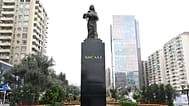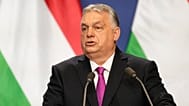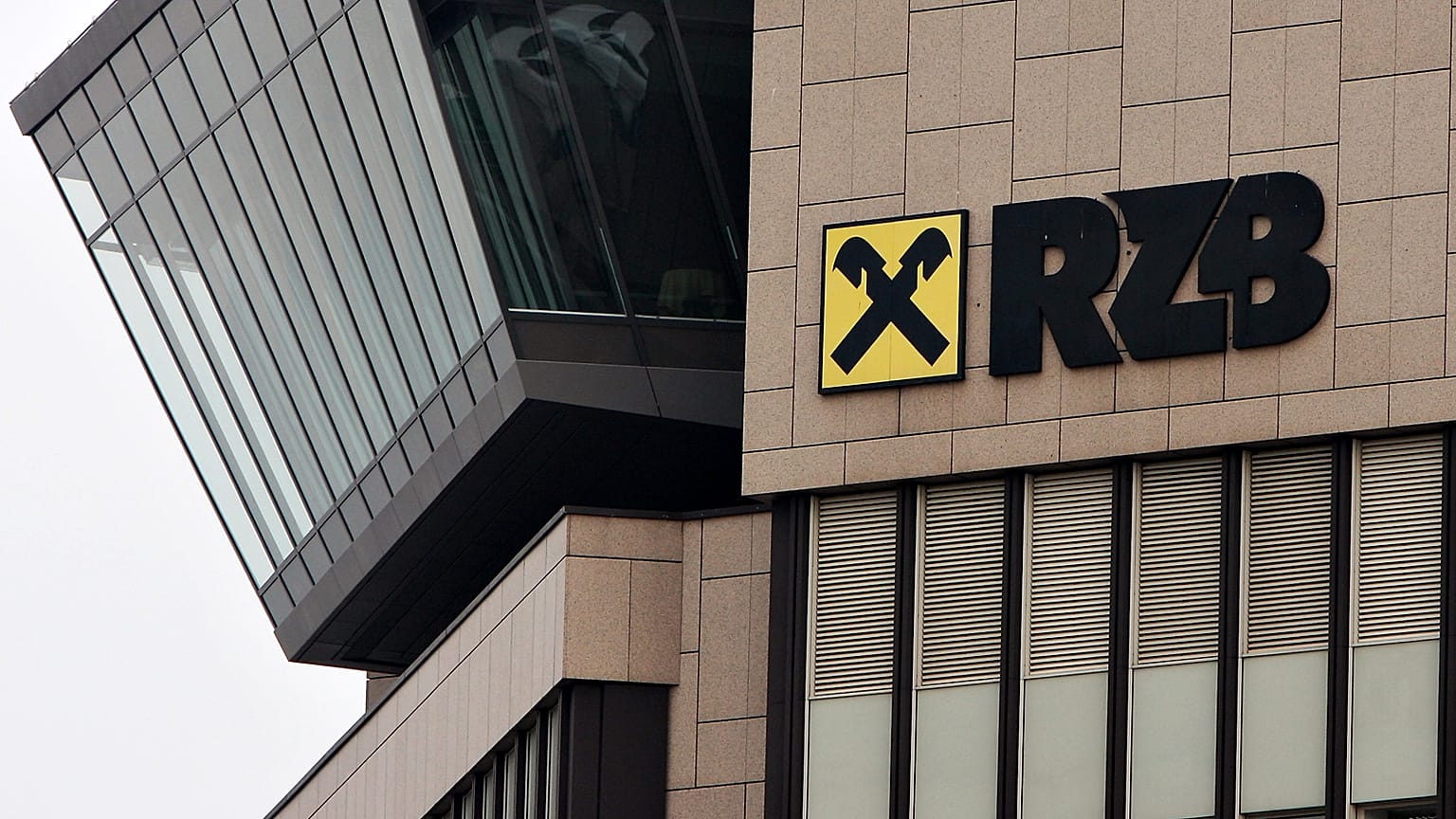Raiffeisen is seeking to offset €2.1 billion in damages imposed by a Russian court. As a solution, Austria has proposed to unfreeze the assets of a sanctioned Russian company. But the plan has proven controversial.
The latest attempt in Brussels to slap Moscow with a fresh round of sanctions and force Vladimir Putin into a ceasefire in Ukraine has stumbled upon an unexpected actor: Raiffeisen Bank International (RBI).
 ADVERTISEMENT
ADVERTISEMENT
 ADVERTISEMENT
ADVERTISEMENT
Austria's second-largest bank and one of eastern Europe's lending powerhouses is on the lips of diplomats as they contemplate, with deep scepticism, a contentious plan to compensate the corporation, which still operates a successful subsidiary in Russia despite a widespread exodus of Western businesses from the country.
At the end of the second quarter of 2025, Raiffeisenbank Russia had equity of more than €5.3 billion and served 3 million customers, according to official data.
But in January, the subsidiary took a hit when a Russian court ruled it had to pay more than €2 billion in damages to Rasperia Trading, a Russian investment company.
According to Raiffeisen, which replied to written questions for this story, the dispute centres on Strabag, an Austrian construction business whose shareholders include Rasperia and Raiffeisen Lower Austria/Vienna, one of RBI's core shareholders.
Rasperia was owned by billionaire Oleg Deripaska until he relinquished control in March 2024. Deripaska himself was among the oligarchs sanctioned by the EU in the first months of Russia's full-scale invasion of Ukraine due to his close ties with the Kremlin.
Deripaska is "responsible for, supporting or implementing actions or policies which undermine or threaten the territorial integrity, sovereignty and independence of Ukraine, or stability or security in Ukraine," the EU Council said to justify the designation.
Two years later, Rasperia itself was added to the blacklist, alongside the companies and individuals that Deripaska employed in a "complex evasion scheme" to sell his stake.
As a result of the sanctions, the 28.5 million shares that Rasperia had in Strabag were frozen, preventing the firm from receiving dividends from Strabag.
In late 2023, Raiffeisen made a move to acquire Rasperia's shares in Strabag, but the deal fell apart after the US voiced concerns about the risk of sanctions circumvention.
Rasperia then launched legal action demanding reparations for the frozen shares and the loss of dividends. Having failed in Austria, the firm brought a claim in a Russian court, which eventually ruled in its favour and ordered the payment of €2.1 billion in damages.
Since Strabag lacked assets in Russia that could be seized, the burden fell on Raiffeisenbank Russia, a subsidiary of Raiffeisen, to foot the bill.
Raiffeisen lawyers complained the Russian court had engaged in intimidation tactics and hampered their ability to present evidence.
Shying away from a can of worms?
The legal saga has now landed in Brussels.
Austria is pushing to lift the sanctions on Rasperia so that the shares can be transferred to Raiffeisen and help offset the €2.1 billion write-off.
"RBI has no business relationships with Rasperia but seeks compensation for the damage caused by Rasperia in Austria. Rasperia still owns frozen assets in Austria (in Strabag), which RBI wants to access," a spokesperson for the bank told Euronews.
"It can pursue this either through a damages lawsuit in Austria or possibly through the currently discussed 19th sanctions package."
The Austrian Foreign Affairs Ministry declined to comment on ongoing negotiations.
Crucially, any change to the sanctions regime would require unanimity.
This is where Vienna's ambitions have hit a wall: according to diplomats consulted by Euronews, no other member state is willing to grant the request, fearing it would open Pandora's box and embolden similar requests in the future.
The European Commission has adopted an ambivalent position to avoid antagonising Vienna on the delicate matter, while privately admitting the plan is controversial.
The original sanctions package drafted by the executive and presented last month did not address Raiffeisen's legal drama. The issue emerged weeks later as an add-on.
With unanimity looking unattainable, the matter is all but certain to be dropped, unless Vienna pulls the trigger and wields its veto power. Unlike Hungary and Slovakia, Austria does not have a track record of single-handedly blocking collective action.
"We're getting there. There are hardly any substantial problems or disagreements left," said a senior diplomat with knowledge of the discussions.
One of the reasons why capitals are so reluctant to accede to Vienna's plea is the fact that Raiffeisen remains the biggest Western lender still doing business in Russia, despite more than three and a half years of brutal war in Ukraine and countless sanctions.
The Yale School of Management, which tracks foreign firms in Russia, has identified Raiffeisen as one of the companies "digging in" the country.
Raiffeisen has been trying to sell its Russian subsidiary since the second half of 2022, the spokesperson said.
However, the efforts were complicated by the need to secure approval from five different regulators, including the European Central Bank (ECB) and Vladimir Putin's office, each with opposing interests. The divestment has not yet materialised.
"If we had reached the end of the list (of potential buyers), we would say so," Raiffeisen CEO Johann Strobl said last week, according to international outlets. "We are not giving up."
Strobl expressed his hope that a resolution to the legal dispute would be found. If the plan in Brussels fails to take off, he explained, the company will ask an Austrian court to sell Rasperia's frozen stakes in Strabag and transfer the proceeds to Raiffeisen.
"We are confident that we would be awarded damages," Strobl said.














